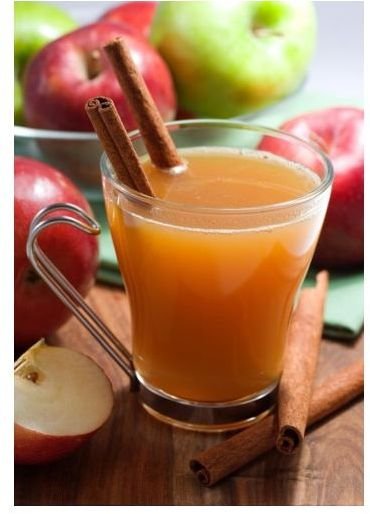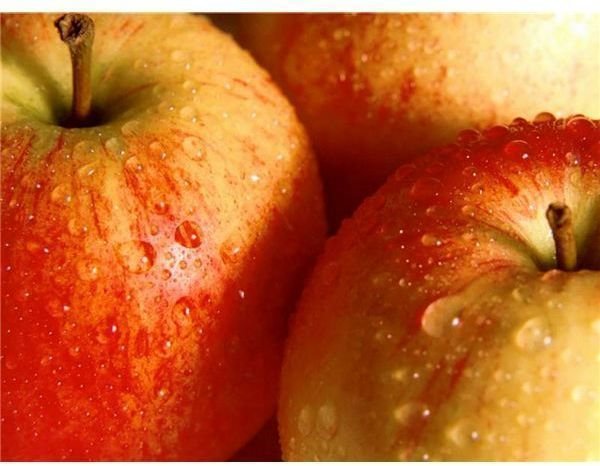The Difference Between Apple Juice and Apple Cider - Making Apple Cider
An Apple a Day
“An apple a day keeps the doctor away”
Who hasn’t heard this old saying a bunch of times? Did you know there’s a depth of truth to it though? In the state of Pennsylvania alone, more than 80 varieties of apples are cultivated. Eighty, whew! – that’s a whole lot of apples. Johnny Appleseed has certainly left his mark.
Enter the World of Apples
A diet based on freshly-extracted apple juice cleanses the liver and is healthy for your skin. They and their juices, have been shown to be useful in the treatment of as diverse a range of illnesses and ailments such as low blood sugar, alcoholism, anorexia, Tuberculosis, coronary heart disease, colitis, kidney stones, gastritis, diarrhea, acne, varicose veins, indigestion, nosebleed and even tooth stain removal along with a host of other uses and applications. Prevention of Alzheimer’s and treatment of forms of Asthma are also clearly linked to apples and regularly drinking apple juice. Apples and their juice however, oxidize very quickly so need to be kept refrigerated for best results and flavor retention. A large fresh apple contains only about 15 calories for each ounce of weight along with vitamin C, carotene, a bit of sodium, vitamin B6, folic acid, riboflavin and thiamine, generous amounts of phosphorous and potassium, among several other nutrients. The vitamin C content of apples can vary considerably depending on the variety with the following apple varieties high in vitamin C:
· Ribston Pippin
· Golden Noble
· Reinette
· Ontario
· King of the Pippins
· Bramleys
· Beauty of Bath
· Blenheim Orange
· Cox’s
· Jonathans
In the mid-range of Vitamin C content are the following varieties:
· Golden Delicious
· Worcester Pearmain
Apple varieties which consistently contain relatively low quantities of vitamin C include:
· Rome Beauty,
· Laxton’s Superb
· James Grieve
The two major “strains” of apple juice are the clear and cloudy packaged juices. The clear apple juice product is double-strained and far less beneficial for you than single-filtered cloudy apple juice is. Why? It’s because a portion of the pulp remains in cloudy apple juice so it provides more health and nutritional benefits. For more information on the health benefits of apples, please read Health Benefits of Apples.
How to Make Your Own Apple Cider

So just what is apple cider, anyway?
Well, simply put, apple cider consists of aged apple juice which has been naturally yeast-fermented for one to three months, with the longer period of fermenting being more highly favored among cider purists. After selecting a blend of sweet vs. tart apples, they are crushed or squeezed to get the cloudy juice. This is then stored in fermentation containers with a bit of champagne yeast in a dark place at temperatures between 40 and 60 degrees F for around three months for best results. While “processing” in its fermentation container, you should regularly check the specific gravity or density of the liquid apple cider. This is an indicator of how alcoholic your apple cider will finally become. The higher the specific gravity number, the stronger the cider will be. For the best, consistent results, use a hydrometer. The specific gravity of the apple cider ought to be between 1.050 and 1.080. The longer the cider sits, the “harder” or stronger it becomes. At this point the “bubbling” has stopped in the mix and the resulting cider is siphoned off and bottled (also called “racking”). Many nowadays also prefer a bit of carbonation in their apple cider so a pinch of extra-fine powdered sugar is added to the cider before final bottling. This allows for a little more fermentation to occur as the remaining yeast will continue to “feed” on this added sugar.
Scientists at Brewing Research International had 35 different varieties of apple cider taste tested along with apple desserts, produced from 15 distinct varieties of cider apples in England. English cider apples are known to be rich in polyphenols which are antioxidant substances proven to be essential for fighting oxidative stress and keeping the cardiovascular system resilient, healthy and strong.
Apple Cider and its Applications
Use your apple cider not only for drinking or “nipping” on frosty afternoons and evenings, but for cooking and other health applications. However you might choose to do it, an apple, glass of apple juice or a snip or two of apple cider, can still be effective in “keeping the doctor away”. Try it and you’ll see.
